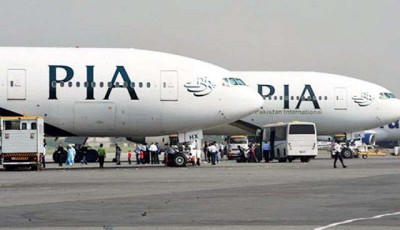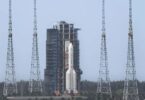The financial crisis of National Flag Career continued to worsen over the past weeks after the caretaker government refused to provide the PIA with a bulk amount to pay for its fuel, maintenance charges and foreign debt. More than 50 flights of Pakistan International Airlines (PIA) were cancelled in a few days while the figures amounted to as many as 650 flights during the past 13 days after the national airline struck a fuel shortage problem. The non-availability of jet fuel completely halted PIA’s flight operation, prompting long queues of travellers at domestic airports meant for outbound flights while thousands of Pakistanis were struck in UAE, Saudi Arabia and other destinations due to disruption in PIA operation. Thousands of passengers faced mental depression and financial losses due to the cancellation of their flights, long wait times and disruption of their onward transit flights from the Middle East to further destinations in Europe, America and the Far East. Meanwhile, a large number of tourists were stranded in Northern areas due to the closure of the PIA’s domestic route, which mounted massive public pressure on the executive and finally interim government approved a Rs. 8 billion financing package for the PIA, to meet its urgent overdue payment obligations.
The Pakistan International Airline (PIA) has been embattled with its chronic ailments of uncontrolled operational and maintenance losses, unproductivity and over staffing, hefty payments and gigantic emoluments of its employees, politically designed flight schedules together with business unfriendly demands of the political government which resulted in idle running of PIA jets on multiple domestic routes.
Previously, the PIA administration moved a case to the Federal treasury for a bailout package to repair its fleet and pay for fuel and ground services but the interim government refused to meet the urgent financial needs of the airline and pushed for its privatization as the National flag career has plunged into persistent financial debt continuously adding to the economic woes of the government in the shape of circular debt, bailout packages and extraordinary funding to pay salaries of its employees. According to government statistics, the PIA’s staggering losses have reached Rs. 153 billion ($500 million) in 2023 alone while the airline incurred over $ 7 billion in losses over the past years since 2012. That is a huge amount for a nation which moves its begging bowl around the globe to get essentially needed $ one billion loan to avoid a looming economic default.
Historically, the interim government was not ready to spend a single penny on PIA and quickly moved toward early privatization of the national airline to get rid of its recurrent losses permanently. However, the mafia was prudent enough to create havoc with the nation as the PIA management continued booking for its normal flight schedule without arranging fuel for the aeroplanes. Whilst, cancellation of hundreds of flights prompted a nationwide crisis causing significant monetary losses to the airline. So, a week-long public misery compelled the interim rulers to arrange a crucial Rs.8 billion for the PIA to resolve the issue for this time, however, still a bulk of funds are required to keep the PIA fleet flying for another few months.
There have been some prickly queries from critics about the performance of the PIA’s colossal setup, a trivial fleet, poor serviceability record and lavish spending of its top executives. Historically, PIA flights have the biggest share in the country’s inbound/outbound flights as compared to private air carriers and its regional competitors, as a national flag career it also gets significant support from the government on an annual basis, even then it failed to carry its burden. The current economic situation does not afford any more subsidies/ monetary aid to state-owned entities. Therefore, the government must kick off its privatization drive of all those enterprises at the earliest that are debt-ridden and cannot operate on their own, so that hard-earned Public can be utilized for national uplift and public well-being.







